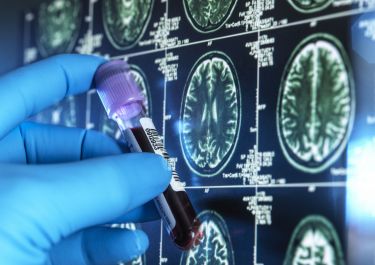Neuroscience

Sciences & Technology
Space research helps find targets for early Alzheimer’s test
Methods used to study asteroids and planets could be used in a new blood test for Alzheimer’s disease – potentially before clinical symptoms develop

Health & Medicine
Why your brain health matters
On World Brain Day, work continues to provide access to life-changing therapies to improve life for those living with brain disorders to reduce disability

Sciences & Technology
Diamonds reveal neural secrets
A new diamond voltage imaging microscope will give us more insight into the neural micro-circuitry that runs our brains

Health & Medicine
A window on memory loss in Alzheimer’s
Using a miniscope to observe the brain in action, researchers find evidence that memory loss in Alzheimer’s may partly be a signalling problem

Health & Medicine
How our brain’s sensorimotor processing areas could flag psychosis risk
Brain markers of sensory and motor function reflect disturbances in early development that can increase the risk of later psychosis

Health & Medicine
How sound alters sense of touch
New research suggests our brains process different sensory inputs more like a symphony, combining and harmonising information rather than processing separately

Health & Medicine
Podcasts
Mindfulness is everywhere, but what actually is it?
Clinical psychologist Dr Nicholas Van Dam explains that despite it being associated with everything from eating to the army, mindfulness isn’t what many of us think it is

Health & Medicine
Fear, memory and brain exploration
A largely unknown region of the brain, the zona incerta, could hold the key to how we control our fears

Health & Medicine
Podcasts
The science of coughing
Coughing is an important human defensive reflex - it keeps our airways clear - but there’s a big difference between a good cough and a bad cough

Health & Medicine
Translating thought into action
The first human trial of a tiny device that reads brain signals is successfully allowing patients with paralysis to operate computers and phones with their minds